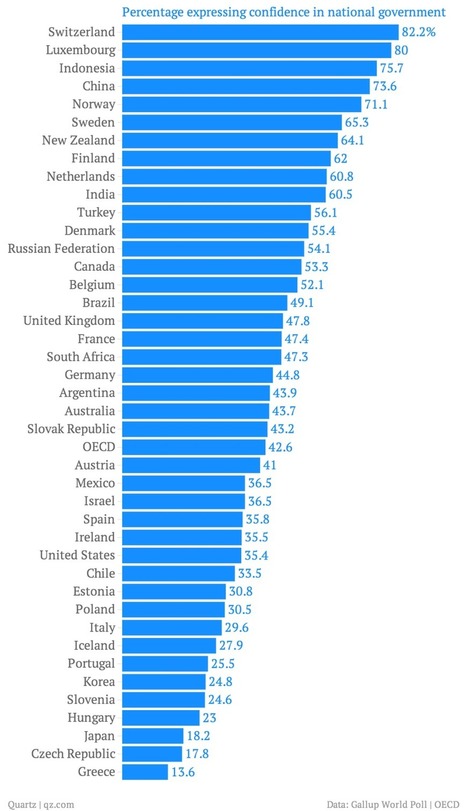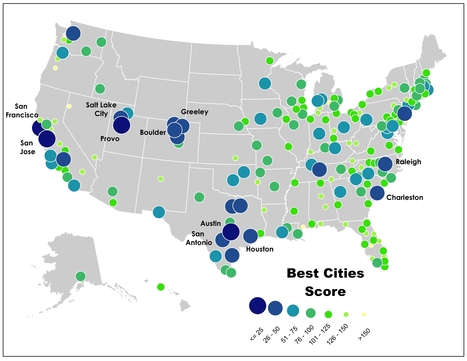The Paris-based think tank known as the OECD is just out with its semi-annual survey of how different economies stack up in terms of social well-being. (Well-being is basically the polite way economists talk about happiness.) The organization even has a new data visualization to let you see where your country ranks in certain key measures.
Called "Society at a Glance," the report is well worth a read. But here are some of the most interesting bits of data we found, in no particular order.
Via Lauren Moss



 Your new post is loading...
Your new post is loading...









Un análisis de datos a la VENA!